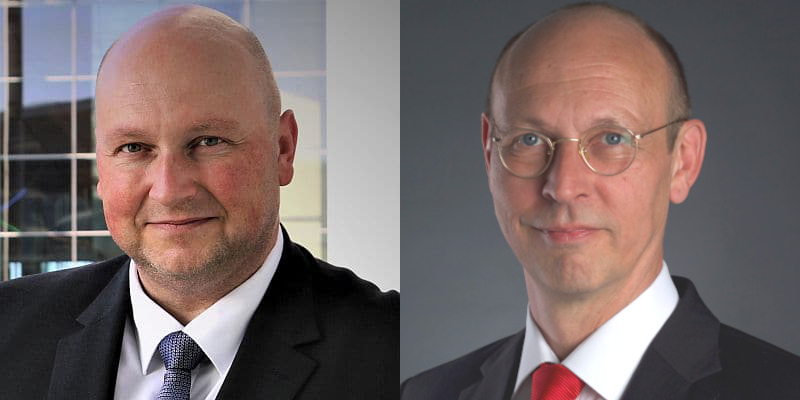Some German producers are attempting to skirt a new law against intoxicating hemp by turning out a wider and wider array of psychoactive compounds, drawing the ire of key trade groups.
The New Psychoactive Substances Act (NpSG), a generic ban on the lab-produced compounds derived from hemp took effect June 27, making HHC, THCP and other popular synthetic and semi-synthetic cannabinoids illegal.
Some manufacturers have responded by bringing to market new substances such as 8-OH-HHC; 10-OH-HHC; THCJD, HHCH, HHCO, THCPO, and Tresconol, compounds that can mimic marijuana by producing a “high” in the user, but which are unexplored when it comes to safety.
Vapes & buds
The compounds are primarily found in vape liquids for electronic cigarettes or sprayed onto industrial hemp flowers sold at kiosks and late-night shops, according to a press release from Germany’s Cannabis Industry Association (BvCW).
Jürgen Neumeyer, managing director of the BvCW, said that by using the substances, consumers who purchase products containing them are “unknowingly becoming guinea pigs.”
“There is no data basis on general toxicity or on ‘dosages’. Effects can occur with a significant time delay, last for several days and are unpredictable for mental health,” he warned, urging containment of the products to protect youth.
Law seems clear
The NpSG was enacted to prohibit the production, distribution and sale of new psychoactive substances, aiming to address the ever-changing landscape of legal highs, and protect public health. The law defines “new psychoactive substances” as those with a similar effect to narcotics, hallucinogens, or other intoxicants. Under provisions in the law, the substances are classified based on their chemical structure, rather than their common name or source.
The sale of synthetic hemp-derived intoxicants also carries liability for retailers, the BvCW said. Aside from regulations in the NpSG, producers could find themselves in violation of the Germany’s criminal code, its Product Safety Act and Tobacco Products Act, according to the press release.
E-Cigarette group joins fight
“These products are not legal, even if manufacturers often point out that they are supposedly legal,” said Oliver Pohland, managing director of the Association of the e-Cigarette Trade (VdeH).
“The sale of such products clearly contradicts our principles and those of our members. Therefore, as an association, we expressly distance ourselves from the sale of these products,” Pohland added.
BvCW recently issued a public warning about the products. The association also formally warned retailers not to sell the products, under threat of legal action against both resellers and manufacturers.
No pot at retail
BvCW, which represents both hemp and marijuana interests, said if pot was available in retail shops, the market for “substitute products” containing hemp intoxicants would cease.
But commercial sales of marijuana are not permitted under Germany’s new Cannabis Act, which legalized the establishment of a “cannabis club” system under which personal possession and home growing were made legal on April 1, 2024. The non-profit clubs, which were authorized to operate starting on July 1, 2024, can collectively grow and distribute marijuana to their membership, which is limited to 500 individuals.
“If recreational cannabis were available in specialist shops, no one would buy these ‘substitute products’,” Neumeyer said.

